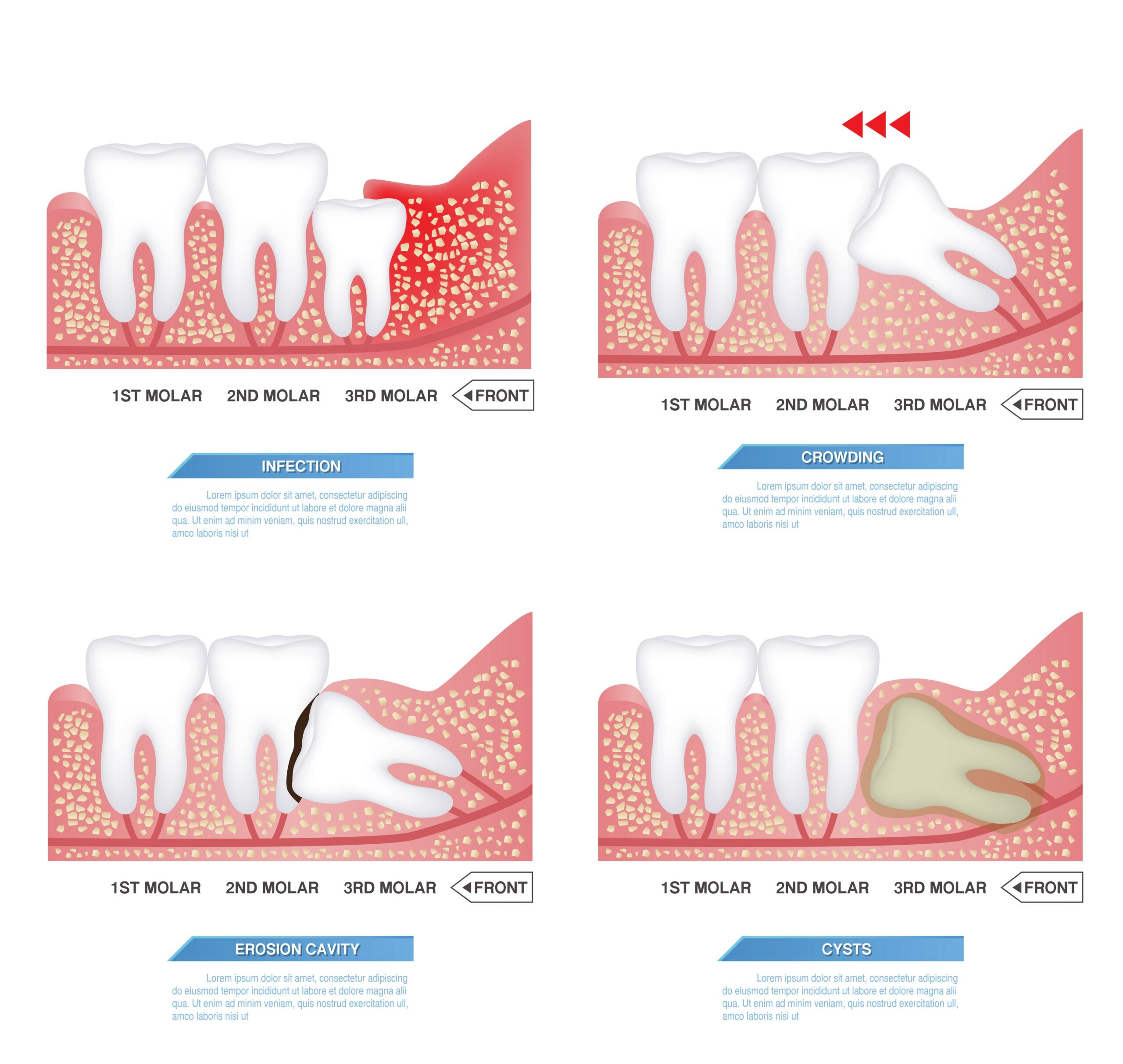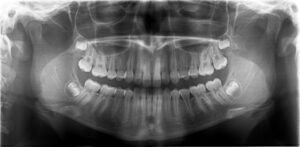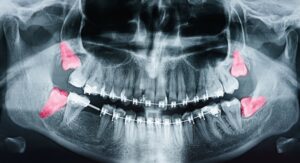
The Best Age for Wisdom Teeth Removal
What is the best age for wisdom teeth removal? When it comes to wisdom teeth, you might have noticed that it is a common surgery for teens and young adults. The reasons why wisdom teeth removal is recommended at this age have much to do with the development of the wisdom teeth in the first place.
Wisdom teeth are the third molars, positioned all the way in the back. They are the last teeth to form and come into place. The age at which wisdom teeth begin to ‘erupt’ is typically between 14-18 years of age. Wisdom teeth get their name because they are typically noticed during the teen/young adult years, affectionately referred to as the “age of wisdom”.
Why do we remove wisdom teeth during the teen years?

The wisdom teeth form slowly over time. They start out as a tiny tooth ‘bud’ inside the jaw bone. As they develop, the crown of the tooth takes shape, and one of the last structures to fully form are the tooth roots. During the teen years, the wisdom teeth are growing behind the second molars. Often, there is not enough room for these large teeth to come in properly. They can become ‘impacted’, meaning they are not able to grow into the dental arch in a normal position. Often, they become trapped in the bone and malpositioned. This can lead to many of the problems we often see associated with wisdom teeth such as:
• Impaction
• Formation of cysts or tumors
• Inflammation/disease of the gum tissue
• Infection
• Tooth decay and/or damage to adjacent teeth
During the teen years and into early adulthood, the wisdom teeth and roots are not fully formed. The bone in this area is also more pliable. Removing problematic wisdom teeth at this stage is proven to be ideal, as it results in a simpler, more predictable surgical procedure, less trauma and a faster recovery. The ideal age to remove wisdom teeth is between the ages of 14-25.
As we mature, the wisdom teeth continue to grow and develop. The roots become fully formed and the bone begins to become less pliable. The tooth roots lengthen, and can begin to encroach on vital anatomical structures, such as nerves in the jaw. While it is still safe to remove wisdom teeth once the roots are fully formed, waiting until middle age can increase the chances of a more difficult recovery, as well as increase the chance of complications such as pain, infection and injury to nerves/vital structures.

Most dentists recommend removal of problematic wisdom teeth between the ages of 14-25 in order to prevent the progression of dental disease, ensure fewer surgical complications and an easier recovery for patients. Problematic wisdom teeth that are left untreated can result in a variety of dental conditions that can require more extensive (and expensive) surgery or treatment in the future.
To find a wisdom teeth removal expert near you, click here.